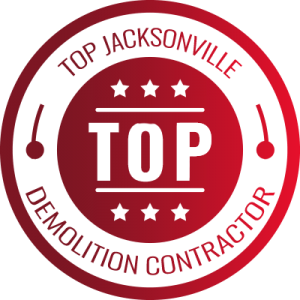



When it comes to large industrial demolition projects, even a single day of equipment downtime can throw your whole schedule off track. Projects that involve heavy machinery, strict deadlines, and multiple moving parts don’t leave much room for stalled machines or broken gear. The longer a piece of equipment is offline, the more that timeline stretches, and so do the costs. Keeping that equipment up and running isn’t just helpful—it can make or break how smoothly the job moves forward.
In Jacksonville, where summer heat and sudden rainstorms are a real part of outdoor work, staying efficient with machinery is not always easy. But taking the right steps early can keep things steady for the long haul. Downtime usually creeps in from common issues like poor planning, missed checkups, or undertrained operators. It doesn’t have to be that way. With the right strategies, demolition teams can avoid breakdowns and keep machines running when it matters most.
Proper Planning and Scheduling
A well-thought-out plan sets the tone for the whole project. Without it, even the best equipment or the strongest team can lose time. Before any machine rolls out to a demolition site, the schedule needs to be solid. That includes knowing when to expect deliveries, what steps come in what order, and which pieces of equipment are assigned to which task.
In Jacksonville’s commercial zones, where buildings often sit side-by-side, it’s even more important to think ahead. Tight space means tighter coordination. If one machine stops working, you may hold up the crews waiting behind it. By making sure everyone’s on the same page from the start, downtime can be cut down before the first pass is made.
Here are a few ways to plan more efficiently:
- Build a day-by-day schedule that accounts for travel time, idle periods, and maintenance windows
- Assign each crew to a specific machine and task. Avoid overlap unless it’s needed
- Have a staging area map ready and shared with all teams ahead of time
- Communicate changes quickly through walkie-talkies or mobile updates
- Before work begins, hold a full team walkthrough to identify areas that may slow things down
Projects don’t always go exactly as planned, but with the right structure in place, those mid-project surprises are easier to work around. Effective planning doesn’t just prevent mistakes. It helps crews adapt faster when something changes.
Regular Maintenance and Inspections
Heavy machines won’t take care of themselves. Whether it’s a concrete breaker, a long-reach excavator, or a standard loader, these tools take a beating on every job. If they don’t get looked at regularly, the wear and tear builds up fast. That’s why routine maintenance and inspections are key—before a project, during downtime, and even while machines are still running fine.
In Jacksonville’s climate, where heat and moisture can cause rust or overheating, skipping maintenance is risky. Wet summer conditions can also affect hydraulic systems and exposed electrical parts. Taking a little extra time to run checks can catch early problems that might go unnoticed otherwise.
Each site and machine will have its own needs, but here’s a good maintenance rhythm to follow:
- Perform a basic inspection at the start of every workday. Check fluid levels, tire pressure, and moving parts
- Plan weekly checks for deeper inspections like belts, hoses, and filters
- Keep tools, grease, and extra parts on site so the team doesn’t lose time tracking them down
- Rotate machines when possible to give the heaviest-worked ones time off
- Maintain a simple binder or digital log for each machine. Note hours of use, repairs, and part replacements
One example we’ve seen—an industrial job along the St. Johns River—had an issue with fine debris clogging air filters. It wasn’t noticed until overheating became a problem, slowing everything down. A quick fix and a new habit of end-of-day cleanouts kept it from becoming a bigger issue moving forward.
Tight schedules don’t leave a lot of room for surprises. That’s why staying on top of inspections and repairs matters. A good maintenance plan can keep the wheels turning and the job site moving without gaps.
Use of High-Quality Equipment
When dealing with heavy-duty demolition jobs in Jacksonville, the gear used can make a big difference. Low-grade or older machines are more likely to break down, especially under the kind of pressure that comes with industrial-level work. Reliable, modern equipment doesn’t just work better. It’s also built to handle long hours without falling apart halfway through a job.
High-quality machinery comes with tougher parts, tighter hydraulics, and more efficient fuel or electric use. It’s also usually easier to maintain, which cuts down on the number of emergency repairs needed. If a crusher or excavator starts acting up in the middle of a job, the delay can ripple across all other tasks. That leads to higher labor costs, stretched deadlines, and team frustration.
Commercial demolition sites in Jacksonville often require:
- High-reach excavators for taller building takedowns
- Dust suppression systems that work in hot, dry conditions
- Hydraulic breakers strong enough for thick concrete
- Skid steers that can handle compact, tight-access areas
- Proper attachments that match the job material and don’t fail under pressure
Smart contractors stay ahead by picking machines that can handle the work without constant downtime. And when renting or buying new equipment, reviewing service history and manufacturer support can help avoid common issues down the line. A single limiter switch or faulty hydraulic hose might seem small, but when it fails at the wrong time, it can grind everything to a halt.
By focusing on better equipment upfront, there’s less guesswork during a job. That means more uptime, smoother operations, and less time waiting for repairs.
Trained and Skilled Operators
Having the right machines is one thing. Having the right people operating them is just as important. Even the best equipment won’t last if it’s not used properly. Well-trained operators don’t just run machines—they listen to them. They know what a normal sound is and when something seems off. That alone helps spot early warning signs before a big breakdown happens.
In commercial demolition, especially around areas like Downtown Jacksonville or the industrial docks, things get tight. Crews often have limited space and limited time to get structures down safely. Every inch matters. Operators who know how to move carefully but efficiently can make a big difference in project speed and safety.
Ongoing training also keeps the team up to date on safety practices, new equipment models, and operation techniques. For example, if a skid steer has been updated with a smart control panel or wider attachment arm, it’s important that the crew knows how to use it correctly. Confusion or misuse just adds wear and slows things down.
It helps to:
- Pair experienced crew members with newer hires as part of regular hands-on training
- Run equipment-specific refreshers when new models or tech arrive
- Review machine manuals and updates with the team, not just supervisors
- Encourage open sharing when someone notices an issue—or has a better way to get the job done
A skilled crew can catch problems early, operate more efficiently, and use tools in a way that avoids extra stress on the machine. This brings downtime down and keeps the workflow moving.
Developing Contingency Plans
Even with the best schedules and best machines, unexpected things can still happen. That’s where solid backup plans step in. On any demolition site, a backup plan can mean the difference between a 15-minute fix and several hours of waiting around. Having the right replacement parts, alternative equipment, or even spare crews can help keep pressure from building when something goes sideways.
A typical mistake is having only one machine available for a specific task. If that machine breaks, the whole portion of the job halts. That’s why it can be helpful to cross-train operators on more than one machine and to keep essential parts on hand, like extra hydraulic hoses, filters, or fuses.
Here’s what a reliable contingency plan might include:
- A list of high-risk machines and what can replace them in a pinch
- Spare batteries, fuel, connectors, and seals stored nearby
- A relationship with a trusted equipment supplier for emergency swaps
- A simple troubleshooting checklist for fast on-site issues
- A go-to person for quick decisions related to delays or equipment failure
One Jacksonville job near the port district had a generator failure halfway through a concrete pulling session. They had a second unit on a trailer just in case, and within 25 minutes, work was back on track. That kind of planning doesn’t just save time—it builds trust across the team and the client.
Creating room for the unexpected means you’re not scrambling when the time comes. It won’t prevent every problem, but it keeps you from standing still when one shows up.
Staying Efficient in Jacksonville’s Climate
Jacksonville weather can put equipment through the wringer. That thick summer heat, sudden thunderstorms, and salty coastal air all play a part in machine wear. Equipment that runs fine in cooler climates might struggle in Northeast Florida if it’s not prepped right.
High humidity can mess with electronics, lead to rust on metal parts, and impact air quality near filters. Heavy rain and wet grounds can make site access harder for tracked equipment. And when lightning rolls in, everything can get shut down, creating big scheduling gaps.
Some ways to keep projects moving:
- Cover sensitive equipment when not in use
- Use corrosion-resistant materials where possible
- Run AC units inside cabs to prevent overheating
- Adjust working hours to avoid peak afternoon heat
- Perform regular filter changes and seal checks
Having weather-based flexibility in your timeline helps too. Projects in Jacksonville benefit from built-in buffer days or split-shift scheduling so crews can get work done in early mornings or evenings when it’s cooler.
Planning around weather isn’t just about comfort. It protects machines from breakdowns that are easy to avoid with the right prep. Matching your workflow with the environment helps keep gear in top shape and teams on track.
Maximizing Efficiency with Elev8 Demolition
Minimizing equipment downtime takes more than one solution. It’s a mix of strong planning, skilled people, and keeping your machines prepped for the job. When everything works together, projects in Jacksonville stay on schedule, even when the heat, rain, or tight urban spaces add pressure.
Getting ahead of problems keeps the site moving. Whether it’s daily inspections, sharp coordination between crews, or having a backup plan for the unexpected, staying prepared makes a big difference. The time and effort spent on these habits pays off in shorter delays, fewer repairs, and smoother delivery for clients. Each step forward comes down to how the pieces come together before and during the job.
In Jacksonville, where demolition work can change from hour to hour, reducing downtime means the job runs cleaner, faster, and with fewer surprises—and that’s something every client wants.
For seamless execution of your industrial projects in Jacksonville, trust Elev8 Demolition to be your go-to industrial demolition contractor. We make sure every aspect of the job is managed smoothly, minimizing downtime and maximizing productivity. Discover how our expert team can keep your project moving without costly delays.

